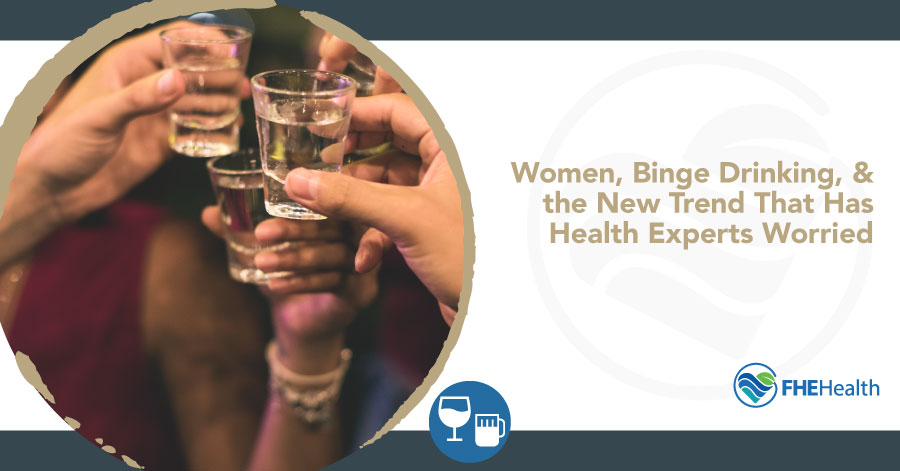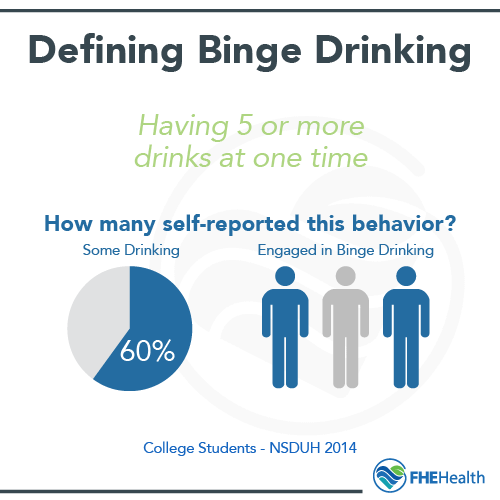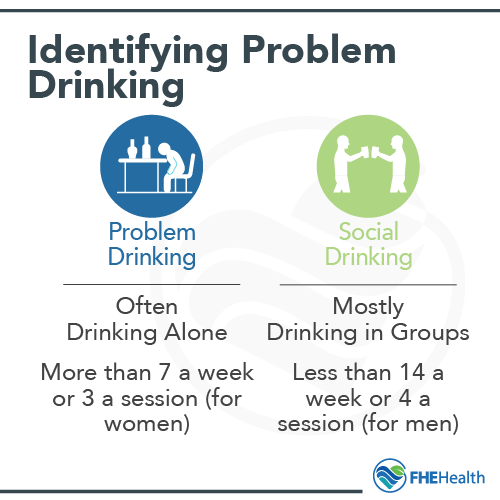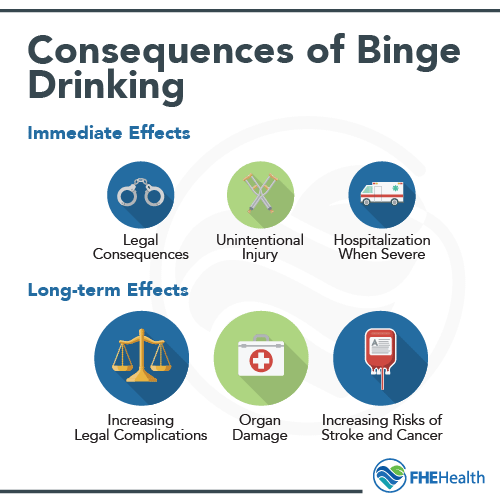
The United States has a binge drinking problem. Popular among high school students, college students and even adults, drinking heavily on a regular basis is a normal thing for far too many people. Around 1 in 6 American adults binge drinks at least four times a month, and for college students, the number is closer to 35%.
In many ways, binge drinking is normalized. TV shows and movies show raucous teen parties, and rappers sing about drugs and alcohol, creating an allure that attracts young people. Kegs flow freely on university campuses across the country numerous nights a week, and many bars in college towns look the other way when freshmen flash fake IDs.
In fact, for many young adults, it’s stranger to stay sober than to blackout on the weekends. Although only a hypothesis, some experts believe that the high legal drinking age in the United States may be driving unhealthy habits among teens and young adults, teaching excess and secrecy rather than responsibility and moderation.
The problem with alcohol abuse often focuses on the reckless behavior of young men. And while it’s true that men are more than twice as likely as women to binge drink, this doesn’t mean all women enjoy a single glass of wine at a party before heading home. Binge drinking among women is a problem as well, despite the widespread focus on alcohol abuse in men.
What Is Binge Drinking?
 Clinically speaking, binge drinking is any practice in which alcohol consumption increases levels in the blood to 0.08 grams per deciliter or higher in two hours or less. This usually means around five drinks for men and four for women. Heavy alcohol use is defined as binge drinking five times a month or more.
Clinically speaking, binge drinking is any practice in which alcohol consumption increases levels in the blood to 0.08 grams per deciliter or higher in two hours or less. This usually means around five drinks for men and four for women. Heavy alcohol use is defined as binge drinking five times a month or more.
For college students used to drinking twice or a few times a week or young grads tipping back shots at the bar during happy hour, this quantity of consumption may seem normal or even low. This sad reality is truly indicative of the issue at hand: Problem drinking looks fairly normal for college students and young professionals.
Binge Drinking vs. Substance Use Disorder
It’s important to note that binge drinking is not necessarily indicative of an alcohol use disorder. For some people, it’s possible to drink heavily on the weekends for fun and still maintain a healthy, normal life during the week.
However, this pattern often isn’t sustainable. It’s not abnormal for those who drink heavily in young adulthood to continue drinking heavily as adults, and it’s not unusual for one night a week to turn into two, three, four or more. Binge drinking can be a slippery slope, and it doesn’t always end when college graduation comes around; people aged 35 and older consume over half of all binge drinks.
Factors Affecting Binge Drinking in Women
 Numerous factors may be influencing the rise of binge drinking among women in the United States, making heavy drinking a normal occurrence rather than a shocking outlier.
Numerous factors may be influencing the rise of binge drinking among women in the United States, making heavy drinking a normal occurrence rather than a shocking outlier.
Increased College Attendance
The effects of college culture on women’s binge drinking habits are well known. Historically, college was a heavily male environment. More females have become college graduates over the last four decades, leading to a corresponding presence at college parties. Many schools have now abandoned antiquated concepts like gendered curfews — or curfews in general — making it easier for women to attend parties and knock back beers with the boys.
Greater Presence in the Workforce
While more women than men graduate from college, there are still more college-educated males in the workforce. However, this tide may be turning.
As the presence of women in high-powered positions increases in fields typically seen as male-dominated, such as finance, technology and medicine, more work traditions, like regular happy hours, include more women than ever before. While hard-partying nights at the bar after the markets close may have once been comprised solely of male bond traders, for example, today’s bar scene involves many women.
Motherhood and Wine Culture
As mothers acquire more platforms, both online and off, to speak out about the struggles of parenthood, a strange new cultural trend has taken form: wine mom. Typified by a joking need for wine to get through the tedium that comes with being a stay-at-home mom or a working mom, the idea of wine as a necessary tool of parenting has spread like wildfire across social media.
From memes about wine being self-care to wine glasses with cutesy quotes about wine o’clock, wine drinking has become bizarrely normalized among stressed-out mothers to the point that actually drinking heavily to survive parenting is becoming more common, too.
Dangers of Binge Drinking in Women
 It may not be fair, but binge drinking can negatively affect women in numerous ways that go beyond the effects seen in men.
It may not be fair, but binge drinking can negatively affect women in numerous ways that go beyond the effects seen in men.
- Biological damage: Everyone knows that problems can come with regular alcohol consumption, including liver damage, heart damage, strokes and weight gain, but due to the smaller size and stature of most women, going toe-to-toe with men can mean increased risks on an accelerated timeline.
- Unintended pregnancies and STDs: While women and men are equally responsible for encouraging safe sex, women face larger consequences when a condom is left forgotten on the bedside table. Binge drinking can cloud thinking, leading to unprotected sex that can result in pregnancy and the spread of STDs. A pregnancy coupled with binge drinking may cause consequences like fetal alcohol syndrome.
- Increase in violence: Around one-half of all rapes involve alcohol abuse. This kind of statement is often interpreted as victim-blaming, but that’s not the case. Alcohol dulls the senses, making it harder to fight off an attacker. Further, alcohol can compromise judgment, making women more likely to make risky choices like walking home alone in the dark. Avoiding a dangerous scenario is harder when under the influence.
In addition to these more gender-specific dangers, women who binge drink are also just as likely as men to fall, get in traffic accidents or break the law due to challenges in judgment. In 2010, binge drinking cost the United States nearly $250 billion.
How to Minimize Binge Drinking
Clearly, binge drinking is a problem for both women and men, but it can be hard to stop when the good times start rolling and the punch bowl fills up. However, you can do a few things to reduce your own propensity for binging.
- Measure drinks: When drinking at home, it’s important to stay cognizant of how much you’re consuming. Some mixed drinks contain large portions of alcohol, resulting in unknowingly increased consumption.
- Increase water intake: In between every drink, commit to drinking a glass of water. This can slow down the rate of alcohol consumption, making binging less likely.
- Eat a meal: Adequate food can slow the absorption of alcohol, making it more likely that you can control intake and stay under the legal limit.
- Say no thanks: Peer pressure can be a big part of ongoing binge drinking, but it’s okay to have a drink or two — or none — and stop. Saying no thanks to a party, a night out or even another drink can help you stay in control.
On a general level, a few steps can be taken to stop the normalization of binge drinking among women. A lack of awareness is currently an issue; the term binge drinking is thrown around a lot, but most people don’t know what it means or why it’s a problem. A campaign approach similar to attitudes toward tobacco could go far; there’s strong evidence supporting the efficacy of widespread smoking awareness.
Getting Help for Binge Drinking
While alcoholism and binge drinking aren’t always one and the same, a propensity for binge drinking can be indicative of future problems. If you feel as though binge drinking is standing in the way of living a healthy life, getting help may be essential.
If you’re seeking a way to stop the cycle of binge drinking or looking for a way to overcome alcohol abuse, support is here. Please contact FHE Health to learn more about our comprehensive approach to alcohol rehabilitation, including inpatient treatment and outpatient step-down programs.






